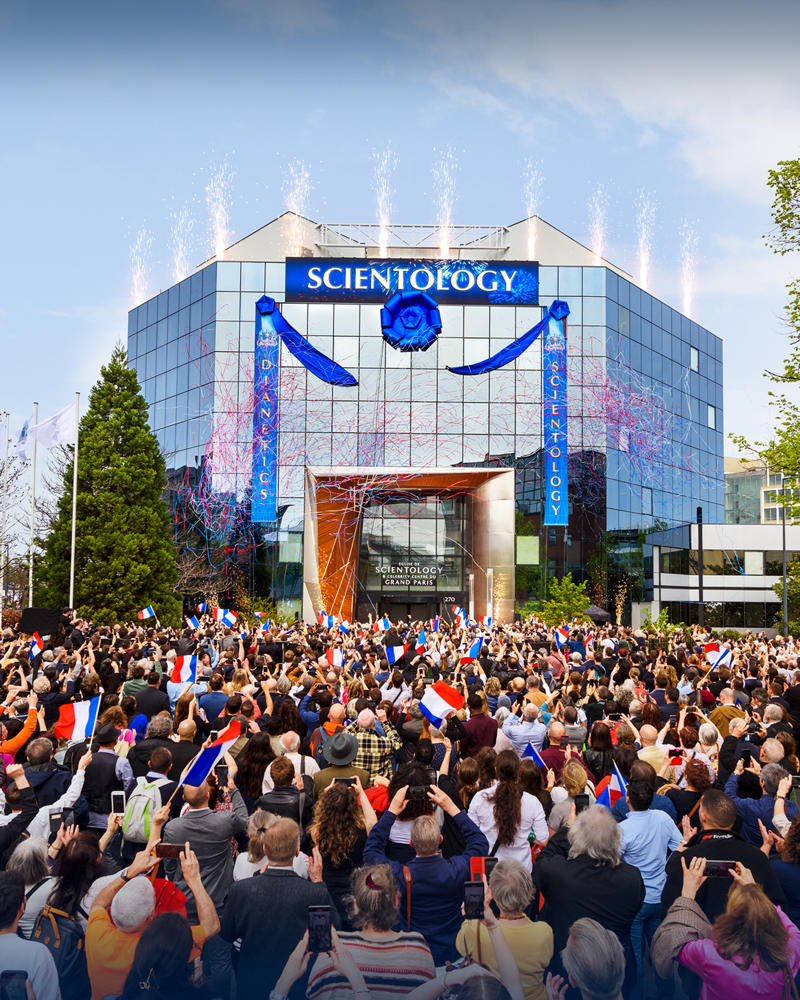The International Influence of Scientology: Expansion and Effect Worldwide
The International Influence of Scientology: Expansion and Effect Worldwide
Blog Article
Unmasking Misconceptions: Dividing Truth From Fiction Regarding Scientology

Origins of Scientology
The beginnings of Scientology trace back to the mid-20th century when L. Ron Hubbard, a scientific research fiction writer, founded the belief system in the 1950s. Hubbard's growth of Scientology originated from his earlier self-help system called Dianetics, which he introduced in the 1940s - Scientology. The change from Dianetics to Scientology noted a shift in the direction of a much more comprehensive spiritual viewpoint that incorporated facets of psychology, Eastern spiritual customs, and Hubbard's very own theories on human presence
Hubbard's exploration into the human mind and spirit brought about the creation of Scientology as a religious beliefs centered around the idea of spiritual knowledge and self-improvement via a process called auditing. Bookkeeping, a type of spiritual counseling, intends to aid people overcome mental and emotional obstacles, understood as engrams, that prevent individual growth and recognition.
As Hubbard's mentors got appeal, Scientology evolved right into an international activity with a significant following. Despite objections and controversies surrounding its techniques and ideas, Scientology remains to draw in fans looking for spiritual gratification and individual growth.
Core Ideas and Practices

An additional fundamental aspect of Scientology is the idea of the Thetan, the spiritual significance of an individual that transcends the physique. Fans aim to understand and reinforce their connection to the Thetan via various practices such as research study training courses and purification rituals.
The Church of Scientology also places a solid focus on the significance of personal obligation and the idea that individuals have the power to form their own destinies. Via adherence to honest standards and the quest of self-improvement, professionals of Scientology strive to attain higher levels of happiness, success, and spiritual fulfillment.
Criticisms and debates
Amidst Scientology's core ideas and practices lies a landscape noted by controversies and objections that have stimulated intense dispute and analysis. Among the significant criticisms leveled against Scientology is its deceptive nature and the claimed exploitation of its members. Former members have actually spoken up concerning feeling pressured to donate large amounts of money to the Church and facing severe consequences if they try to leave. Additionally, Scientology's status as a tax-exempt spiritual company in some countries has actually been a factor of contention, with movie critics saying that its techniques are much more comparable to a business than a religious beliefs. Scientology.
One more location of controversy surrounds the Church's treatment of movie critics and dissenters. Reports have emerged of harassment, intimidation, and lawful dangers directed at those that speak out versus Scientology. This has actually raised worries regarding freedom of expression and the company's commitment to transparency and responsibility.
While Scientology has actually emphatically denied most of these claims, the conflicts and objections surrounding the Church continue to fuel public hesitation and examination.
Scientology's Impact in Society
With its existence in numerous sectors of society, Scientology's impact can be observed in both subtle and overt methods, forming interactions and perceptions. In the world of education and learning, the Church of Scientology has actually faced scrutiny for its initiatives to introduce its mentors into institutions via programs like "Applied Scholastics." Doubters say that such campaigns blur the lines in between church and state, potentially impacting the instructional experiences of pupils. In addition, Scientology's influence encompasses the realm of psychological wellness, where its sights on psychiatry and psychology have actually stimulated arguments within the clinical community. The church's anti-psychiatry stance has actually led to suspicion and issues concerning the efficiency of psychological wellness therapies. In the realm of enjoyment, Scientology's organization with top-level stars has accentuated the religion, both favorably and adversely. The participation of renowned figures in Scientology has, in many cases, offered to popularize the religious beliefs, while in others, it has drawn objection and increased questions regarding the church's practices and ideas.
Debunking Common Misconceptions
What misconceptions concerning Scientology are generally held and exactly how can they home be disproved? One common misunderstanding regarding Scientology is that it is a cult. Nevertheless, the Church of Scientology is legitimately recognized as a religious beliefs in several nations, consisting of the USA, where it has tax-exempt standing. Like various other faiths, Scientology provides spiritual advice and practices for its participants.
An additional false impression is that Scientology compels its participants to reduce connections with their households. Actually, the church emphasizes the significance of family members partnerships and encourages members to maintain healthy links with their liked ones.

Conclusion
In conclusion, it is important to different fact from fiction when reviewing Scientology. By examining its beginnings, core ideas, debates, and impact in society, we can disprove usual mistaken beliefs surrounding this click here now religion. It is critical to approach the topic with a objective and essential frame of mind in order to recognize Scientology properly and right.
Rooted in a foundation of spiritual enlightenment and individual development, Scientology's core ideas and practices include a varied array of concepts and routines. Central to Scientology is the idea that humans look here are immortal spiritual beings who have forgotten their true nature. The involvement of popular numbers in Scientology has, in some situations, served to popularize the religion, while in others, it has attracted criticism and raised inquiries regarding the church's beliefs and practices.
The Church of Scientology is legitimately identified as a faith in several nations, consisting of the United States, where it has tax-exempt condition. Like other religions, Scientology offers spiritual assistance and practices for its participants.
Report this page